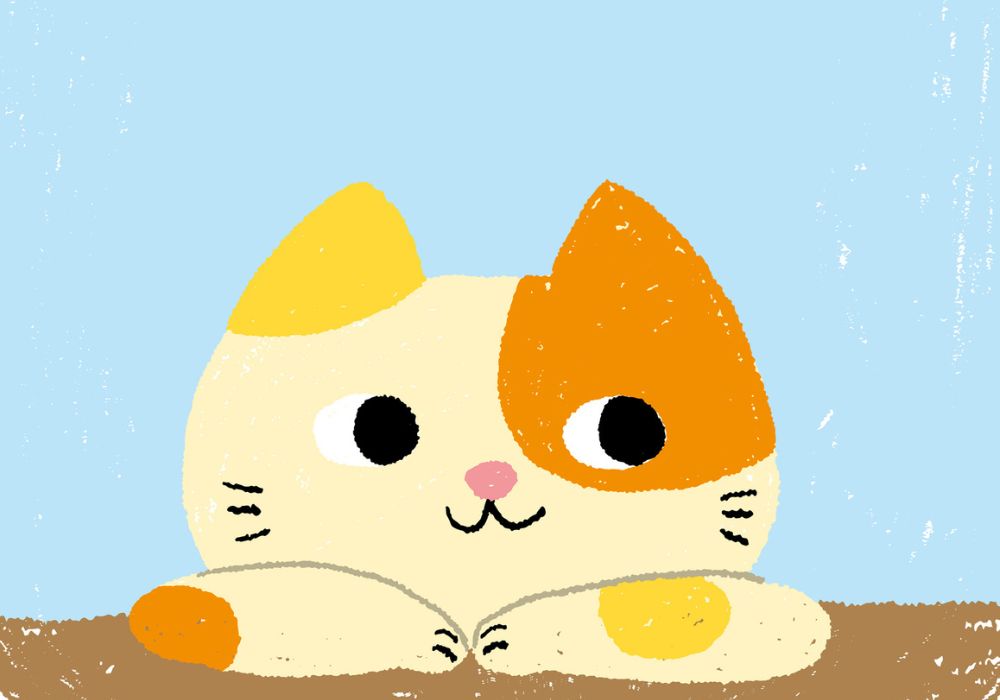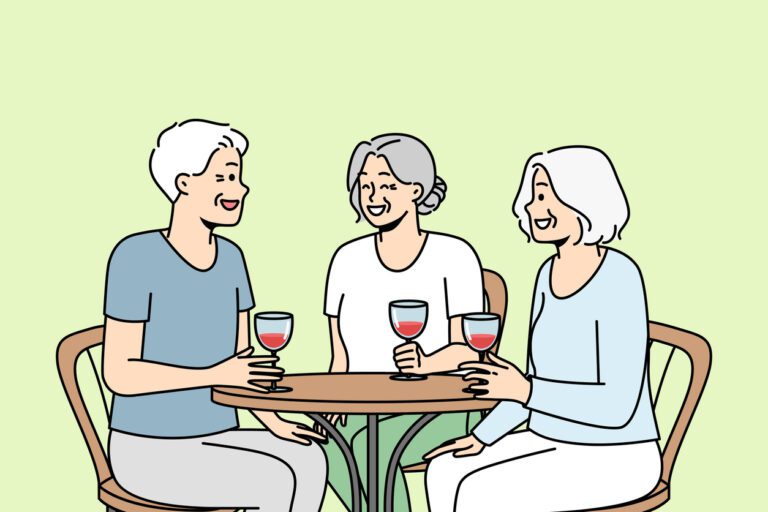I do not know why I have such a fancy for this little café,” she said. “It’s dreary.”
“Mm, but convenient,” said her friend.
I overheard this exchange while waiting to place my order. Tucked away in an often cold and windy Wellington street off Lambton Quay, this inconspicuous café does have a drab appearance. Despite that, I, too, have come to like it. It has an old-fashioned charm and imparts a surprising feeling of contentment. Toasty fragrances of cinnamon, vanilla, and fresh bread, grilling bacon, and the fill-the-room scent of freshly made coffee are beguiling. In winter, a fire glows. It suggests a comfortable and restful home, in stark contrast to my own.
Jilly, the owner, a cosy woman in a headscarf and stout boots, is happy and cheerful. The bits of Jilly between her scarf and boots are lavish with curves that undulate gently from one to the next. She dresses in white shirt and loose black trousers, wrapped around with a black apron. Jilly’s gregarious nature is engaging. Although I do not often eat here, the food is as generous as is Jilly. The coffee is delicious, and so most mornings, I stop for a bold espresso with a silken kiss of crema before I venture to my office further down the Quay.
I am one of many who enjoy the comfort and comestibles of this appealing little café. Among its daily habitués is a fierce little cat. Had it not been for Jilly’s declared aversion to felines, she would have officially lived there, and as she is in attendance so often, she may as well be considered a permanent resident, despite Jilly. She is a smudgy tortoiseshell with possibly once-thick, soft fur, white socks, and mathematically equal whiskers, as I note with interest, being of a precise and analytical nature. And I venture that she isn’t unfriendly by nature but has become so as she is hungry and unloved. She remains lean as she forages for scraps as she can in and around the café. Jilly occasionally puts out a bowl of milk for her, the dregs of the large plastic containers more often upended for deep cups of caffè latte. She says she dislikes the way cats look at her, especially this one, so the sustenance is an act of reluctant charity rather than affection.
I fancy the fierce little cat wants to have her own human, and white bowls with blue stripes around them set by the warmth of a stove and filled twice daily with reliable meaty food and clean, fresh water. She wouldn’t think it too much to ask. She longs, I believe, to sit on a friendly knee, her contented claws kneading yielding flesh and purring with pleasure as her once-again thick, soft fur is stroked and petted.
“Dear little cat,” her person would say.
But she is not appreciated, and they say “scat, cat” as she slouches around booted ankles and meows for food, amber eyes looking up in supplication.
“Piss off, bloody cat,” say others, not so polite, and aim a pointed toe to facilitate the departure of the unfortunate creature. I look on over Letters to the Editor, sitting in my accustomed corner in what I have come to think of as the stray cat café.
“Oh Mum, he’s so cute, can we have him?” one day asks the piping treble of, I would guess, a five-year-old, on release from school for an appointment, as his mother’s litany of life reveals.
“No, we can’t. God knows the last thing we need is a stray cat, and who knows what diseases it has. Besides, it’s a she, not a he; all tortoiseshells are female. Leave it alone, I said leave it alone, come on, hurry up, we have to go, or we’ll be late for the optometrist.” Poor wee chap. His thick, black-framed glasses magnify his eyes, and he has a somewhat startled look about him.
His dark-navy school uniform is far too big, purchased with plenty of room for him to grow into, but he is so slight of stature that it could take some time.
His schoolbag droops from fragile, hunched shoulders as they leave the café, and he turns and looks one last time at the little cat before his mother roughly propels him into the street. He would have been a perfect person for the lonely tortoiseshell cat.
And so, I observe almost daily the plight of the unlucky animal. It is easy to see that the small creature needs the comforts of life that cannot be poured into bowls, blue-striped or otherwise. Me, you say. I should take the fierce little cat with me if I feel so strongly about her. Secure her in a box and carry her home past John Plimmer and Fitz, his dog, frozen in bronze time. No, not me. I am similar to Jilly and not overly fond of cats, so there is no thought of my adopting this one.
My emotions are stirred by compassion and the dislike of seeing distress, animal or human. I am of an analytical mien and want a happy outcome for her, but that is as far as my interest in this sorry animal goes.
I do, however, have a disinclination for the anthropocentric, human-based worldview. I am not predisposed to anthropomorphism as I have indulged in this account, but if you press me, I will tell you that this waif reminds me somewhat of me. It would be refreshing to be loved and fêted by a kind being who would welcome my presence and not aim merciless blows at my vulnerabilities and cast me aside.
I am like the fierce little cat, made prickly by circumstance and neglect. It is a sad thing to not be loved. While I am comfortable in my own company, as events have dictated, I see both the can-be wildcat and I are lonely and would like to be understood. Although, to my shame, I have not petted her or provided more than a sympathetic look for her.
I am an observer, safe in my niche, a brief engagement with an uplifting espresso is my only reason to be here.
I feel sorry for her vulnerability and obvious need.
If made to feel guilty as she begs, others take the time to pet her, despite her impulses to wound, and offer a scrap of bacon or the end of their smoked salmon. She is voraciously grateful, eating her spoils with hungry greed, and then, after checking to see if there could be more forthcoming, sits and grooms herself with the sandpaper hairbrush of her tongue and soft white paws. I think she finds her careful grooming calming, and as her life is difficult, she surely needs such solace. Each morning, as I take my leave of Jilly and her friendly café, gather my wool coat and scarf around me and depart for work, I wonder how the rest of the day will pass for the hopeful four-legged beggar.
My office, clad in dark, old-fashioned wood panelling, is depressing and serves only to emphasise the dull nature of my job, which does not merit a passing mention. However, as it was instrumental in bringing about the next stage of my story, I will note it. In this gloomy hutch in which I spend my working life, I am on occasion visited by a pleasant woman around my age, and I would guess of a similarly emotionally deprived status. She brings and removes files; she is the keeper of those and is strict about their incomings and outgoings. We chat, desultory conversation about the chill, windy days, the infrequent bus service she is obliged to use, and the terrible state of the capital’s footpaths.
In an uncharacteristically unguarded moment, I happen to mention my predilection for the unassuming little café and my soft spot for its furry inhabitant. She responds with interest and an enthusiastic request to be introduced to Jilly and the fierce little cat.
Despite my misgivings and what I immediately feel is an invasion of my privacy and my protected life, I have inflicted this on myself. I have little choice but to suggest we lunch together, an offer quickly accepted.
If Jilly is surprised to see me in company, she doesn’t show it as she takes our orders. We each choose a soup, a choice of pumpkin or mushroom. I loathe mushrooms in any way, shape or form and opt for the predictability of pumpkin. The tortoiseshell hopeful slides between the chairs, her tail a pointer, as she comes at once to investigate us. My companion, Jeanne, takes an immediate liking to her and picks her up and strokes her, whereupon the creature settles on her knee, her usual request for food abandoned, and her tendency to inflict pain on the unwary, absent. She curls like a comma, folds her tail neatly about her, tucks her paws beneath her and makes pprrruptt pprrruptt noises.
“Oh, the dear little cat,” exclaims Jeanne, as happy as is her knee warmer. We enjoy our soup, and Jeanne’s contented new friend stirs only to make herself even more comfortable. Inevitably we must leave to return to our files and dreary wall panelling, and, disappointed by the need to move, la petite femme unfolds herself and curls around Jeanne’s legs, and she is not at all fierce.
Several days go by before I again see Jeanne. She stops by my office. She seems flustered, and I wait to learn the reason for her visit. It is not, it seems, about a filing matter. She asks, do I think it would be all right … er, would I approach Jilly for her? She wonders, could she take the fierce little cat and make it her own? That way, she says, Jilly would be free of the unwanted quasi-custodianship, the unloved animal would become loved, and she, Jeanne, would be happy, as she currently is not.
She feels as lonely as her intended pet and would welcome the opportunity to provide love and care. I cannot say I am surprised, as her instant attraction to the animal has shown her to be kind-hearted and willing to accommodate another. I said I would speak to Jilly the following day.
Jilly is more than happy. “She’s not mine, as you know, so there’s no need to ask,” she says, “but yes, I’ll be pleased to have her gone. She’s a nuisance.” As neither Jeanne nor I have a vehicle and the bus is not an option with a boxed creature, Jilly kindly offers to transport the little stray to her new home.
In a rare moment of empathy, I purchase two bowls, white with blue stripes, during my lunch hour and give them to Jeanne, who is very appreciative. I am, strangely, happy to do my bit, although the thought that my morning coffee will no longer be in the proximity of this small being inexplicably saddens me. She has given me much to think about and an odd sense of belonging and kinship, and I am startled to find I will miss her, with her scratchy nature and determined will to survive.
The day of the adoption arrives. Jeanne calls by my office and suggests I accompany her. She invites me to dinner: she will cook for us once her new housemate is fed and made comfortable. I surprise myself by accepting, for reasons of which I am yet unsure. We present ourselves at the café after the last coffees and soups of the day have been dispensed. Jilly is prepared with a cardboard box that previously housed coffee cups, and which she has thoughtfully softened with a folded blanket, and its intended inhabitant is carefully picked up.
And then I notice beneath her immaculate socks the pinky-white paw pads she walks on so soft and silent. They remind me, somehow, disgustingly of mushrooms.
About the Author
Shelley has a Master of Management degree from the University of Auckland. She enjoys writing non-fiction, short stories, flash fiction and political opinion pieces. She has done many courses including the short story course with NZ Writer’s College. Her story here is an example of ‘literary taxidermy’ in that it uses the first and last sentences of a story by another author, in this case, Katherine Mansfield’s ‘Je ne parle pas français’.







